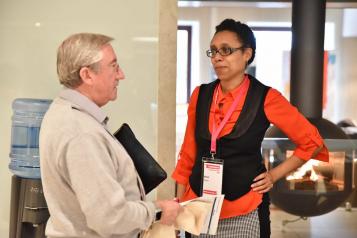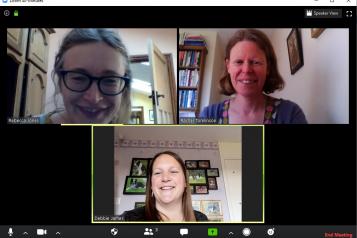Sustainability and transformation plans
The challenges are closing gaps in health and wellbeing, care and quality and finance and efficiency.
Sustainability & Transformation Partnerships (STP) are umbrella plans that each local health and social care system must carry out and develop in order to meet the challenges of the Five Year Forward View.
Bristol, North Somerset & South Gloucestershire (BNSSG) are working together as one of 44 agreed local areas within the UK to develop a plan. Healthwatch North Somerset, Healthwatch Bristol and Healthwatch South Gloucestershire have met to discuss how members of the public will be kept informed and involved in the development of the plans.
The Sustainability & Transformation Plan for Weston Hospital undertook engagement until April 2017.
Frequently Asked Questions
What are Sustainability and Transformation Partnerships (STPs)?
STPs are place based, multi-year plans built around the health and care needs of the local population. They were announced in the NHS planning guidance published in December 2015.
Our ‘footprint’ covers Bristol, North Somerset and South Gloucestershire (BNSSG). Leaders from health and care organisations across the footprint must work together to transform the way services are delivered to better meet the needs of the local population and to ensure that they are sustainable for the future.
STPs must:
- Improve quality and developing new models of care
- Improve health and well being
- Improve the efficiency of services
Will local people be involved in these plans?
The NHS has issued guidance which says that to succeed, STPs will need to be developed with, and based upon, the needs of local patients and communities:
‘Involving people, communities and stakeholders meaningfully is essential to effective service improvement and transformation, from collectively identifying problems and designing solutions to influencing delivery and review. Effective communication and involvement throughout the process will help to build ownership and support for proposals to transform health and care and will help identify potential area of concern’
What is the role of local Healthwatch?
There is a local Healthwatch in Bristol, North Somerset and South Gloucestershire. We were set up in 2013 to encourage local people to speak up about their experiences and views of health and care.
We exist to:
- Promote the involvement of local people in health and care
- Monitor the quality of health and care services
- Provide information about health and care
- Using the voice of local people, influence the decision makers of health and care.
We have agreed to work together on STP so that there is a strong voice for local people in the process. We have agreed that our role is to advise the organisations involved in STP on effective communications, engagement, and consultation with local people.
Together we will be monitoring the quality of the communications, engagement and consultation. We will challenge the STP process if we have any concerns about these areas.
What does Healthwatch want to see?
Healthwatch Bristol, Healthwatch North Somerset, and Healthwatch South Gloucestershire will be looking for evidence of:
- Good quality and accessible information for local people about STP as it develops
- Opportunities for the voluntary sector to be involved
- Engagement with patients and organisations which can represent patients and service users
- Co-producing any new services with the people who use them
- Formal consultation should it be required
What are the 3 stages to involving people?
- Inform: People need good quality information so that they can develop their thinking and views on the subject including the options.
- Engage: Open conversations between the public and the people who plan and deliver health and care services. There needs to be opportunities for people to get involved whether that is through a local meeting or through workshops to co-produce care pathways.
- Consult: Consultation is a formal process that seeks the view of the public on what is being proposed before a final decision is taken.
Public consultations: what can you expect?
Consultation is best carried out after having informed and involved people in the ‘thinking’ stages beforehand.
All organisations must adhere to some legal guidance which is known as the ‘Gunning Principles’. If there is any legal challenge to any consultation process, then these principles are always reviewed:
- Consultation must take place when the proposal is still at a formative stage
- The reasons for the change must be clearly stated so that the public can understand and consider the proposals
- Adequate time must be given for the public to consider and respond
- The organisation must be able to evidence that they have listened and considered the feedback they receive from the public.
Want to know more?
As a local Healthwatch we encourage feedback about health and social care services so that we can influence change and where appropriate bring challenge based on what local residents tell us. Local residents can contact their local Healthwatch in different ways:
Healthwatch North Somerset:
www.healthwatchnorthsomerset.co.uk
01275 851 400
contact@healthwatchnorthsomerset.co.uk
Healthwatch South Gloucestershire:
www.healthwatchsouthglos.co.uk
01454 543 402
info@healthwatchsouthglos.co.uk
Healthwatch Bristol:
0117 2690 400


